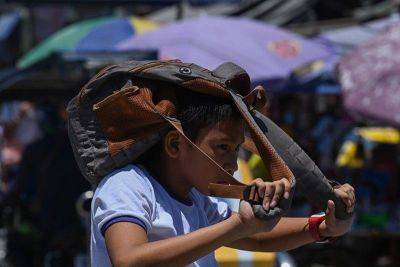Collaborative solutions for surging energy needs
The onset of the dry season coincides with the nation grappling with the continued effects of El Niño, anticipated to persist until May, according to national weather bureau PAGASA.
In numerous regions across the country, scorching heat indexes reaching up to 51 degrees Celsius have been reported. In response to the extreme heat, the Department of Education has made the decision to permit schools to transition from in-person to online classes in order to safeguard the well-being of students, particularly children, from the adverse effects of the intense heat.
One of the most significant impact of the dry season is that it brings with it the inevitable surge in electricity consumption as more Filipinos turn to longer usage of cooling appliances to combat the sweltering heat.
Historical data shows a notable increase in energy demand, from 10 percent to 40 percent between March and June, primarily due to prolonged usage of air conditioners and electric fans.
Now, with greater urgency than ever before, it is crucial for Filipinos to acknowledge the significance of embracing smarter electricity usage practices and embracing “bayanihan” to effectively manage the surge in energy demand.
Recently, the Department of Energy (DOE) issued a crucial advisory urging the National Grid Corp. of the Philippines (NGCP) and distribution utilities to “be fully ready to activate and implement” the Interruptible Load Program (ILP) for the dry season. The ILP is a voluntary demand-side management initiative among large-load power consumers which aims to shield households from power interruption during Red Alert situations or when electricity supply falls short.
This advisory from the DOE underscores the call for “bayanihan” within the business sector to provide assistance in ensuring uninterrupted electricity service to households, majority of whom lack backup generators. In scorching temperatures, continuous electricity supply is non-negotiable, and it entails active collaboration among all stakeholders.
The ILP serves not only as a demand-side management strategy but also as a collaborative tool that promotes a sense of shared responsibility toward our energy usage and in the





